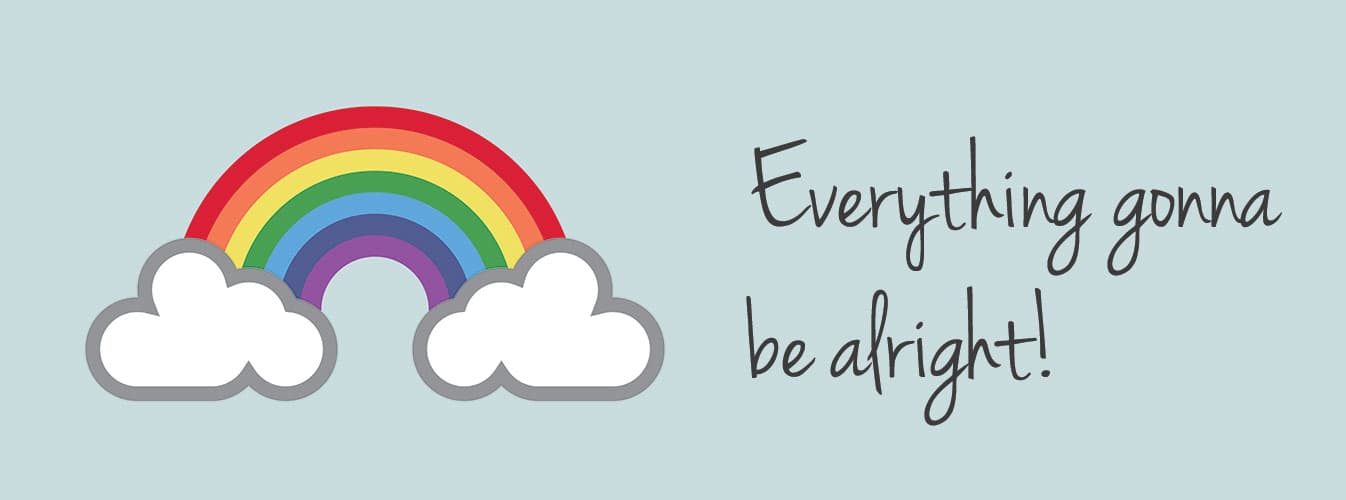The global COVID-19 pandemic has proven to be a challenging situation for everyone – especially workers. Some companies have shut down completely in order to respect social distancing regulations, while others have laid off staff members to cut costs during these financially unstable times.
If you are an individual who is now out of work as a result of the COVID-19 pandemic, we understand the stress you might be under. As a result, we have put together a guide for how to best navigate your way through job loss.
iCash is here to help you towards a path to improved financial health. As an online-only lender, iCash will continue to provide financial assistance in the form of loans during this time. Our staff members are all working from home but remain dedicated to helping those who need cash fast. If you have any questions or concerns, please call us at 1-844-419-2274.
1. Stay Safe, Conscientious and Informed
Since details revolving around the COVID-19 pandemic change on a daily basis, it is best to stay safe, conscientious, and informed throughout. Please adhere to the personal hygiene, social distancing, self-isolation, and self-quarantining guidelines brought forth by public health officials. To see the most up-to-date information, regularly visit the official websites for the Government of Canada and the World Health Organization.
What’s more, refrain from overbuying groceries or supplies. Not only could this put an unnecessary strain on your finances, it also means others may have to go without. If we shop responsibly, everyone should be able to get what they need.
Lastly, do be aware of questionable individuals attempting to use this situation as an excuse to engage in fraudulent behaviour. We ask that you pay attention to your phone calls, emails, online accounts, or social media interactions for any suspicious behaviour.
2. Government Support
The federal and provincial arms of the Government of Canada have stepped forward with various ways to assist citizens through the COVID-19 pandemic. Below is a look at some of what is available to Canadians.
Federal Government Benefits
Employment Insurance (EI): If you have worked the required number of insurable employment hours in the past 52 weeks and been without work/pay for seven consecutive days during that period of time, you can be eligible for EI. Benefits are typically 55% of your average insurable weekly earnings. The maximum insurable earnings a person can accumulate in a year is $54,200 ($573 per week.) Benefits last anywhere from 14 to 45 weeks, depending on the individual.
Canadian Recovery Benefit (CRB): This particular benefit is designed for those who had to stop working or have had their income reduced by at least 50% due to the COVID-19 pandemic. Here, a successful applicant will receive $500 in weekly income support, for up to 26 weeks. Individuals who do not qualify for EI are eligible to apply for CRB. Please refer to the official CRB webpage for further details..
Canada Recovery Sickness Benefit: The CRSB provides $500 per week for up to a maximum of two weeks, for workers who are unable to work for at least 50% of the week because they contracted COVID-19 or are self-isolating for COVID-19 related reasons. This benefit is also available to workers that have
underlying medical conditions that would make them more susceptible to COVID-19. For full details or to apply for CRSB, please visit the official CRSB webpage here.
Canada Recovery Caregiving Benefit: The CRCB provides $500 per week for up to 26 weeks per household for workers who are either unable to work for at least 50% of the week because they must stay home to care for a child or a family member due to schools or daycares being closed, or because the child or family member is sick or required to quarantine. For full details or to apply for CRCB, please visit the official CRCB webpage here.
Provincial Government Benefits
Alberta: Ahead of the CERB being launched, Alberta offered an Emergency Isolation Support program that provided 79,596 eligible residents a combined $91.7 million in relief. The province is currently offering deferrals on specific bank loans, student loans, as well as utility payments. An education property tax freeze has also been instituted.
British Columbia: The B.C. Emergency Benefit for Workers provides a one-time $1,000 payment for residents who have lost income due to COVID-19. What’s more, certain provincial taxes have been deferred, delayed, or reduced. Rent amounts have been frozen, while evictions have been suspended.
Manitoba: The province has instructed Manitoba Hydro, Centra Gas, Manitoba Public Insurance, and other similar entities to not charge interest, or evoke any penalties, on those unable to pay their bills on time. This measure will be in place until October 1.
Nova Scotia: The province has earmarked $20 million to assist self-employed people and laid off workers who do not qualify for EI. Applicants deemed eligible for this benefit will receive a one-time payment of $1,000. Furthermore, each person already on income assistance will get an additional $50.
Ontario: The province has suspended the once in a six-month provision rule for the Emergency Assistance Program. Also, Ontario has temporarily reduced electricity rates. Now, the off-peak hours rate (which is the lowest rate available for consumers) will run all day long.
Prince Edward Island: In P.E.I., the COVID-19 Income Support Fund has launched. This benefit is open to people who have lost work or revenue due to the pandemic, or recently saw their Employment Insurance benefits expire. To qualify, you must have an active EI or CERB application, or intend to apply for one of these benefit programs. Eligible applicants will receive a lump-sum payment of $750 from the province.
Since the COVID-19 pandemic is a very fluid situation, please note that all assistance measures provided by the federal and provincial governments can change at any point.
3. Pursue Your Tax Return
If you have not submitted your taxes yet, but anticipate that you will be receiving a return, it is now time to begin the process. Certain accountants can assist you remotely during the COVID-19 pandemic, or you can purchase an at-home, online filing tool like TurboTax. The faster you file, the sooner you will be able to get the extra money you need to support your family.
4. Minimize Expenses Where You Can
Many people will see their income reduced during this time. With that in mind, it is important to take a look at your expenses and minimize them where you can. Of course, some will be easier to mitigate than others. This, however, can be alleviated by asking yourself a simple question: “What do I consider to be a necessity?” From there, subtracting products and/or services from your life will get easier.
Subscriptions: If you have multiple subscriptions, you could cancel the ones that appear redundant to you. For instance, if you have Netflix and Crave, pick which of the two movie/TV streaming services you prefer, then temporarily step away from the other.
Cable: Companies like Rogers are offering customers a wider variety of free preview channels for a limited time, which could bring you more bang for your buck. However, if you would prefer to cut down the size of your monthly bill, most providers have a number of cost-effective TV channel packages.
Utilities: Certain provinces across Canada have chosen to lessen rates for utilities (i.e. hydro), and/or suspend interest fees for bills that are not paid on time. Take a few minutes to research what type of breaks utility companies are providing to customers in your region.
Phone: Because getting a hold of loved ones is more important now than ever, phone companies like are offering flexible payment options to individuals who have been financially affected by COVID-19. As an added show of goodwill, Telus is also offering free educational activities for families.
Insurance: Take a look at the insurance you are currently paying and see if there is anything that can be scaled back. For instance, if your car insurance plan’s cost can go down due to you driving less during social isolation, that is something worth exploring.
5. Deferring Rent Payments
For some, affording rent has become a primary, pandemic-related concern. As such, understanding the options you now have as a tenant is very significant.
At this juncture, provinces like British Columbia, Nova Scotia, and Ontario have temporarily suspended evictions during the COVID-19 pandemic.
If you live in a province where such regulations have not been instituted and are concerned about your ability to make rent payments, initiate a friendly, respectful conversation with your landlord. Explain your situation and see if rent deferral is possible. If you are able to work out a mutually beneficial agreement, please make sure to get it in writing.
6. Defer Mortgage Payments
Just like renters, homeowners also face the stress of determining how to pay for the roof over their heads. Fortunately, Canada’s six major financial institutions – RBC, TD, BMO, CIBC, Scotiabank, and National Bank of Canada – are allowing customers to postpone mortgage payments for up to six months.
Certain banks have said mortgage payments for their customers will remain the same until the end of their mortgage term. Others, however, have explained that deferring would eventually lead to larger monthly mortgage payments for customers. Higher future interest costs are also a possibility.
If you decide to defer future mortgage payments because of the COVID-19 pandemic, request that your bank gives you written confirmation of this arrangement. Doing so will safeguard you in case your credit score is incidentally diminished by such a deferral.
7. Make Minimum Debt Payments
Although most of us would prefer paying off debts as quickly as possible, your current economic situation may hinder that possibility.
However, you should still do your best to consistently chip away at your bills, even if you are only able to make minimum payments on debts with low interest. Taking on this strategy will leave you with more money in-hand to cover necessity purchases like groceries and medicine.
We suggest contacting the lenders you are currently working with to find out the best repayment options available to you.
8. Look into Alternative Income Sources#
If you are searching for a bit of extra cash to help cover your bills, maybe it is time to think about finding alternative income sources. With lots of restaurants now experiencing an influx of delivery requests, you could perhaps find a temporary gig with Skip the Dishes or Uber Eats.
For those who would rather do some work from the comfort of their own home, the Internet is filled with gig work related to finance, marketing, publishing, website development, or even product/service testing.
9. Hold on to Your Retirement Savings
Even though the COVID-19 pandemic has brought with it an uncertain economic present and future, do your best to not panic and quickly remove funds from your retirement savings. Instead, explore as many borrowing and cost-cutting opportunities as you can first. Prematurely dipping into your retirement could result in monetary losses you may come to regret later on.
We recommend only touching your retirement savings if you have exhausted every other option as it relates to restabilising your financial situation.
Just because you may be struggling to make ends meet at this very moment, your situation will eventually improve. If you plan accordingly and spend wisely during the months ahead, better times will find you.
If you are an iCash client, or a prospective one, please feel free to contact us at 1-844-419-2274 if you need any assistance.
We are all in this together. Stay healthy and stay safe everyone.













